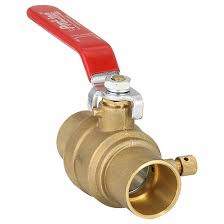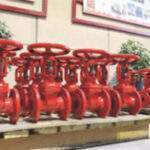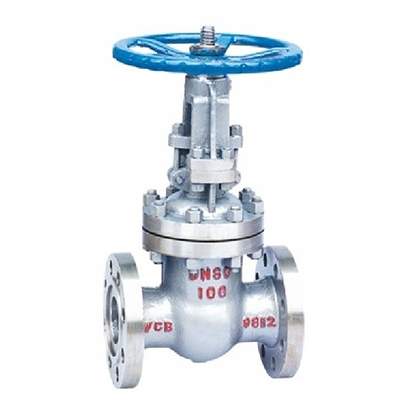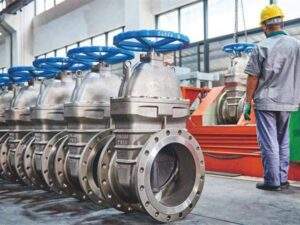Welcome to My Blog!
Before we dive into the content, if you’re interested in our products or have any questions, please feel free to visit our Contact Us page on the website. Our team is ready to assist you with inquiries, orders, or any support you may need.
Now, let’s get started on our journey together. I hope you find the content here insightful, engaging, and valuable.
Introduction

When it comes to fluid and gas control in plumbing and industrial systems, selecting the right valve is essential. Among the various valve types available, copper pipe ball valves are one of the most reliable and versatile options. Their durability, ease of use, and resistance to corrosion make them a popular choice for both residential and industrial applications. However, choosing the right copper pipe ball valve for your specific needs can be challenging, given the range of factors to consider.
In this article, we will explore everything you need to know about selecting the right copper pipe ball valve. From understanding key factors like material compatibility to considering size, pressure ratings, and applications, we’ll guide you through the selection process. By the end of this guide, you’ll be equipped to make an informed decision to optimize your system’s efficiency and longevity.
What Are Copper Pipe Ball Valves and How Do They Work?
Copper pipe ball valves are designed to control fluid flow through a pipe using a spherical disc with a hole in the center. When the valve is turned, the ball either aligns or blocks the flow, depending on whether the valve is open or closed. These valves are simple to operate, requiring just a quarter-turn to fully open or close, making them highly efficient for fluid and gas control.
Because copper is naturally resistant to corrosion, copper pipe ball valves are an excellent choice for applications involving water, heating systems, and even gas. Copper’s durability allows these valves to perform well in both residential and commercial settings for long periods with minimal maintenance.
Key Factors to Consider When Choosing Copper Pipe Ball Valves
Selecting the right copper pipe ball valve involves more than just picking a size or material. Consider the following critical factors to ensure optimal performance and longevity:
Material Selection
Copper is an ideal material for ball valves used in plumbing systems due to its corrosion resistance and durability. However, depending on the specific application, you may need to choose additional features for certain fluids or conditions. For instance:
- Stainless steel ball valves might be more appropriate for high-pressure or chemically aggressive fluids.
- PTFE (Teflon) coated valves are suitable for high-temperature or aggressive environments.
Understanding the fluid type, temperature, and chemical exposure of your system will guide you in choosing the correct material.
Size and Flow Rate
The size of the valve must match the diameter of your pipes to ensure adequate flow and avoid pressure loss. For example:
- A 2-inch copper pipe ball valve is commonly used in small residential systems.
- For larger systems, such as industrial piping, 4-inch or 6-inch valves may be needed to accommodate higher flow rates.
Selecting the right valve size will ensure efficient and reliable flow control.
Pressure and Temperature Ratings
Each copper pipe ball valve is rated for specific pressure and temperature conditions. Always verify that the valve can handle the maximum pressure and temperature that your system will encounter. High-pressure systems will require valves specifically rated for those conditions, such as high-pressure copper ball valves or high-temperature valves.
Common Applications for Copper Pipe Ball Valves
Copper pipe ball valves are widely used across various industries due to their versatile features. Here are some common applications:
Residential Plumbing
Copper pipe ball valves are commonly found in residential water supply systems, controlling the flow of water in kitchens, bathrooms, and heating systems. Their ability to resist corrosion and ensure reliable shutoff makes them perfect for these applications.
Gas Lines
Copper’s resistance to corrosion makes copper pipe ball valves ideal for gas applications, such as in residential gas lines or commercial systems. These valves offer a tight seal and help prevent leaks.
Heating Systems
In systems like hot water circulation or radiator systems, copper pipe ball valves provide excellent temperature resistance, ensuring smooth operation even in high-temperature conditions.
Industrial Fluid Handling
In industrial settings where fluids, oils, or chemicals are handled, copper pipe ball valves are used for controlling and regulating fluid flow. Their ease of use and durability are key for maintaining operational efficiency.
Table: Common Applications of Copper Pipe Ball Valves
| Application | Key Features |
|---|---|
| Residential Plumbing | Reliable shutoff, corrosion resistance, easy installation |
| Gas Lines | Leak-proof, pressure-rated, corrosion-resistant |
| Heating Systems | High temperature resistance, efficient flow control |
| Industrial Fluid Handling | Durable, high flow capacity, low maintenance |
How to Properly Install Copper Pipe Ball Valves
Correct installation is critical for ensuring the performance of your copper pipe ball valve. Here’s a step-by-step guide:
- Turn Off the Water Supply: Always ensure that the system is de-pressurized before installation.
- Cut the Pipe: Use a clean, sharp pipe cutter to make a smooth cut in the copper pipe.
- Prepare the Pipe: Deburr the edges of the pipe to avoid damage during installation.
- Install the Valve: Insert the valve into the pipe, ensuring the flow direction matches the arrow on the valve body.
- Tighten the Connections: Use a wrench to tighten the connections, making sure they are secure.
- Test the Valve: Once installed, test the valve for leaks and smooth operation.
Proper installation ensures a leak-free system and helps maintain system efficiency.
Maintenance Tips for Copper Pipe Ball Valves
While copper pipe ball valves are low-maintenance, regular checks will help ensure long-term functionality. Here are some maintenance tips:
- Inspect for Leaks: Check for any signs of leaking around the valve body, stem, or connections.
- Clean Regularly: If the valve becomes difficult to operate, clean it by removing any debris or buildup inside the valve.
- Lubricate the Stem: Apply a non-corrosive lubricant to the valve stem if it becomes stiff to turn.
- Replace Worn Seals: If you notice leaks around the valve or difficulty in operation, replace the seals or washers as necessary.
Copper Pipe Ball Valves vs. Gate Valves: Which Is Better?

Gate valves are often chosen for systems where isolation is the main requirement. They provide a tight shutoff but are slower to operate compared to copper pipe ball valves, which offer quick, quarter-turn operation.
For applications that require frequent or quick on/off control, copper pipe ball valves are usually the better option. They provide faster flow control and are easier to use in day-to-day operations. Gate valves, on the other hand, are better for applications that require a tight seal but infrequent operation.
Conclusion
Choosing the right copper pipe ball valve is essential for maintaining an efficient, durable, and safe system. Factors like material compatibility, valve size, pressure ratings, and application requirements play a significant role in ensuring your system performs optimally. By considering these factors and following proper installation and maintenance procedures, you can ensure the longevity and reliability of your copper pipe ball valve.
Whether you’re working on a residential plumbing project or a large industrial system, copper pipe ball valves provide a robust, cost-effective solution for regulating fluid and gas flow. By understanding the key factors involved in selecting the right valve, you can make a well-informed decision for your system’s needs.
FAQ
How do I determine the correct size for my copper pipe ball valve?
The size of the valve should match the diameter of your pipes. For example, a 2-inch copper pipe ball valve is typically used in residential systems, while a 4-inch valve would be better suited for industrial applications.
Can copper pipe ball valves be used for gas systems?
Yes, copper pipe ball valves are commonly used in gas systems due to their corrosion resistance and ability to provide a secure seal.
Can copper pipe ball valves be used in high-temperature applications?
Yes, copper pipe ball valves are designed to handle temperatures common in water heating systems and other moderate-temperature applications. For extremely high-temperature applications, check for specific high-temperature ratings.




